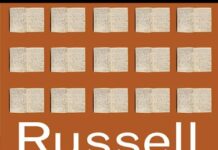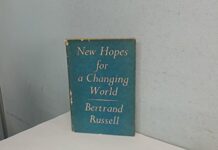
Ebook Info
- Published: 2021
- Number of pages: 140 pages
- Format: PDF
- File Size: 0.22 MB
- Authors: Bertrand Russell
Description
The Analysis of Mind by Bertrand Russell is a groundbreaking work in the field of philosophy and psychology. Published in 1921, this book is widely regarded as one of the most influential works of the early 20th century. In it, Russell explores the intricacies of the human mind, including topics such as the nature of perception, memory, and consciousness. He also examines the relationship between psychology and philosophy, and how they can be used to understand the workings of the mind. By addressing these issues, Russell created a foundation for further philosophical and psychological inquiry. With its thoughtful and comprehensive analysis, The Analysis of Mind remains an essential read for anyone interested in the study of human cognition.Bertrand Arthur William Russell (1872-1970) was a renowned British philosopher, mathematician, social critic, and political activist. He is widely considered one of the most influential thinkers of the 20th century and is best known for his contributions to the fields of logic, mathematics, and the philosophy of language. Born in Wales to an aristocratic family, Russell demonstrated an aptitude for mathematics from a young age and was educated at Cambridge University, where he studied mathematics and philosophy. He soon became a professor of philosophy and wrote extensively on a variety of topics, including logic, language, ethics, and metaphysics. His most influential works include The Principles of Mathematics (1903), The Problems of Philosophy (1912), and An Inquiry into Meaning and Truth (1940). Throughout his life, Russell remained active in politics and was an outspoken advocate for social justice. He was especially critical of the Cold War, nuclear weapons, and oppressive regimes. His work in philosophy and activism earned him numerous awards and accolades, including the Nobel Prize for Literature in 1950. In addition to his scholarly pursuits, Russell was also a prolific writer, producing numerous books and essays on a wide range of topics. He continued to write and lecture well into his 90s and died in 1970 at the age of 98. His legacy continues to live on, with his work continuing to inspire future generations of philosophers and social activists.
User’s Reviews
Reviews from Amazon users which were colected at the time this book was published on the website:
⭐This is Russell’s book on Psychology. It is should be considered a pair with his later “Analysis of Matter” as both are about the relationship between Mind and Matter. This book draws heavily on James, Freud, Watson, Hume and others and presents a largely uncontroversial philosophy of mind. The middle chapters (they were lectures originally) go to great (aka dull) lengths to define such terms as “sensation”, “memory”, “feelings”, and “habit”. At the end and the beginning, Russell talks about his philosophy of Neutral Monism–the belief that both Mind and Matter are made up of the same (neutral) substance.Russell is always a good writer and this book contains much of his common-sense approach and logical exposition of arguments. However, it is not as well written as some of his other works, having neither the humor nor the quick pace of his best stuff, while not going deep like his more academic works.I read this book primarily because his Neutral Monism is often cited by Panpsychists as prior art arguing that “consciousness” is fundamental to the universe. Russell things sensation is fundamental to both Psychology and Physics. Psychology is the study of a single Mind’s perspective on things in the world; whereas Physics is what is common to all perspectives. “Matter is a fiction,” he says, which allows us to correlate Physics theories with things in the world. He hardly mentions Kant, but clearly, this is something like Kant’s concept of experiences vs things-in-themselves. Since both Matter and Mind are defined in terms of Sensation, this leads Russell to his intuition that they are based on similar rules and thus made up of similar, neutral fundamental parts.One hundred years later, even with Quantum Theory giving Observers a special role, this definition of Matter seems suspect. Russell himself starts down the path of saying Matter is more fundamental than Mind, observing that Minds (Brains) are clearly made up from Matter (nerves, etc) whereas it is not clear that the reverse holds. But then in mid-argument he jumps to his definition of Matter as collections of perspectives. My understanding is that this Materialistic trend continued in later versions of Russell’s theory.Regarding Panpsychism (which is not mentioned in this book), Russell talks about Consciousness and Subjectivity in his conclusion, but by my reading the modern Consciousness is closer to Russell’s Subjectivity and his Consciousness is more like Active Attention. Using his definitions, Russell rejects rejects Consciousness as fundamental because it is too complex (has parts). However, he then goes on to say that “Subjectivity” is likely to be fundamental. In the end though he says his theory needs further development and awaits studies of the brain to support or refute his Neutral Monism. Clearly the debate is not over but I can’t recommend reading “Analysis of Mind” for advancing the case except as a historical curiosity.
⭐If your a big fan of the Compact Oxford English Dictionary keep that magnifing glass in hand. This edition is an exercise in eye strain101. As a compensation, the back cover has an extra large font if you need to relax your eye for a bit. But just a bit, the back cover is less than 70 words including such classics as: a, the, is, as, it, of, by, so dispare not. And inside are wonderful black and white pictures of Van Gogh’s et al. These original in museums aren’t worth seeing anyway because there not in black and white as they should have been painted in the first place. Bertrand Russell desirves so much more than the shoddy editing this editon recieved.
⭐I chose this book too quickly on the phone for my kindle. I wanted a Bertrand Russell book. I consider myself a sophisticated reader, but this is a book of lectures,and does not lend itself well to the written word. I would not recommend it to the casual reader.
⭐Print is extraordinarily small
⭐Wonderful book by Bertrand Russell, a true masterpiece on the concept of mind, consciousness and the working principles of the brain. The December 15, 2020 edition is well made with good characters’ size. Recommended.
⭐This is a printout of a very strange copy of Russell’s (fantastic) text. The text is set centred instead of left-justified, footnotes appear in the middle of a page, the text begins on the backside of the title page, there is no table of contents – short: there is no layout whatsoever and that makes the text very hard to work with.
Keywords
Free Download The Analysis of Mind in PDF format
The Analysis of Mind PDF Free Download
Download The Analysis of Mind 2021 PDF Free
The Analysis of Mind 2021 PDF Free Download
Download The Analysis of Mind PDF
Free Download Ebook The Analysis of Mind





